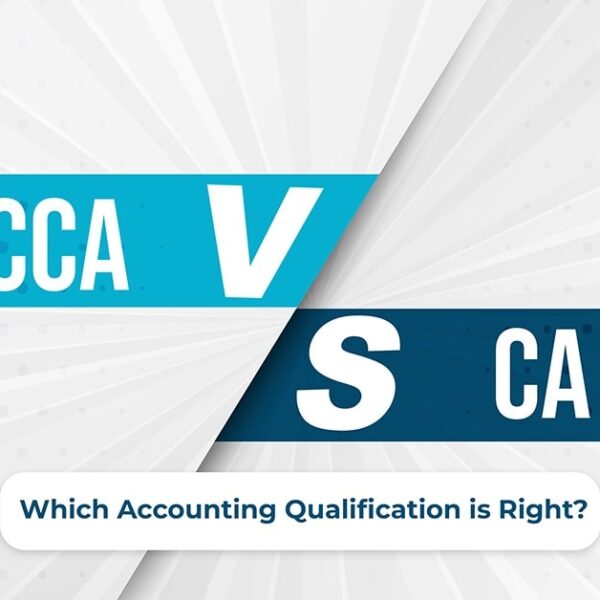In India’s competitive finance landscape, professionals increasingly seek ways to differentiate themselves and expand their career opportunities. While the Association of Chartered Certified Accountants (ACCA) qualification provides a strong foundation, strategically combining it with complementary credentials can significantly enhance your professional profile. This article explores effective qualification combinations for ACCA professionals in the Indian context.
Strategic Benefits of Qualification Combinations
Before exploring specific pairings, it’s important to understand the core advantages of holding multiple credentials:
Career Differentiation
In a market with growing numbers of qualified professionals, multiple credentials help you:
- Stand out in competitive recruitment processes
- Command premium compensation
- Access specialised roles with unique skill requirements
- Demonstrate commitment to continuous professional development
Knowledge Integration
Complementary qualifications provide:
- Broader perspective across different domains
- Deeper specialisation in specific areas
- Diverse problem-solving frameworks
- Ability to bridge knowledge gaps between disciplines
Market Adaptability
Multiple qualifications enhance career resilience through:
- Expanded job market accessibility
- Ability to pivot between different sectors
- Reduced vulnerability to industry-specific downturns
- Qualification recognition across borders
Effective ACCA Combinations for Indian Professionals
ACCA + Indian CA (Chartered Accountancy)
This powerful combination creates a professional with both global and local expertise:
Complementary Benefits:
- CFA provides deep investment analysis expertise
- ACCA offers broader accounting and business knowledge
- CFA focuses on portfolio management and securities analysis
- ACCA covers financial reporting and corporate finance
Career Impact:
- Exceptional positioning for investment banking roles
- Strong foundation for asset management careers
- Valued in equity research and financial analysis
- Premium opportunities in financial services sector
Practical Approach:
- Considerable overlap in foundational knowledge
- Pursue sequentially rather than simultaneously
- CFA requires work experience in investment decision-making
- Consider CFA after establishing ACCA foundation
ACCA + Data Analytics Certifications
This modern combination addresses the digital transformation of finance:
Complementary Benefits:
- Data certifications develop technical analysis capabilities
- ACCA provides financial context for data applications
- Technical skills enhance automation and reporting capabilities
- Finance knowledge guides relevant data insights
Career Impact:
- Growing demand in financial planning and analysis
- Valued for finance transformation initiatives
- Strong positioning for financial systems implementation
- Emerging opportunities in fintech companies
Practical Approach:
- Consider certifications from Google, Microsoft, or IBM
- Focus on Python, R, SQL, or Tableau for finance applications
- Start with fundamental data skills, then progress to advanced analytics
- Apply learning to finance projects for immediate professional relevance
ACCA + Indian CS (Company Secretary)
This combination creates a specialist in corporate governance and compliance:
Complementary Benefits:
- CS provides expertise in corporate law and secretarial practice
- ACCA offers financial management and reporting knowledge
- CS grants specific legal authorities in Indian corporate context
- ACCA delivers global financial perspective
Career Impact:
- Exceptional positioning for corporate governance roles
- Strong foundation for compliance leadership
- Valued in listed companies and regulated industries
- Opportunity for corporate advisory services
Practical Approach:
- Significant commitment due to comprehensive nature of both qualifications
- Consider executive CS programme if already ACCA qualified
- Focus on governance aspects that complement financial expertise
- Leverage exemptions where available
Industry Specific Combinations
Different sectors value specific qualification pairings:
Financial Services Industry
Recommended Combinations:
- ACCA + CFA for investment management
- ACCA + FRM (Financial Risk Manager) for risk functions
- ACCA + CAIA for alternative investment roles
Manufacturing Sector
Recommended Combinations:
- ACCA + Cost Accounting certifications
- ACCA + Six Sigma for process improvement
- ACCA + Supply Chain Management qualifications
Technology Sector
Recommended Combinations:
- ACCA + IT certifications (SAP, Oracle)
- ACCA + Project Management (PMP, Prince2)
- ACCA + Data Science credentials
Implementation Strategy for Multiple Qualifications
Sequential vs. Parallel Pursuit
Consider these approaches:
Sequential Acquisition:
- Complete one qualification before beginning another
- Allows focused study and application
- Extends overall qualification timeline
- Often produces better results in each credential
Parallel Pursuit:
- Study for multiple qualifications simultaneously
- Accelerates overall qualification timeline
- Requires exceptional time management
- May reduce performance in individual qualifications
Practical Experience Integration
Maximize value through work experience:
- Apply new knowledge in professional contexts
- Seek projects leveraging combined skill sets
- Document practical applications for both credentials
- Request responsibilities that utilise integrated expertise
Continuous Relevance Maintenance
Sustain the value of your qualification portfolio:
- Complete continuing professional development for all credentials
- Stay updated on changes in each professional domain
- Participate in communities for both qualifications
- Develop thought leadership at the intersection of disciplines
Cost-Benefit Analysis
Consider these factors when evaluating qualification combinations:
Financial Investment
Assess comprehensive costs:
- Direct fees for examinations and memberships
- Study materials and preparation resources
- Opportunity cost of study time
- Continuing education requirements
Time Requirements
Evaluate realistic timelines:
- Study hours required for each qualification
- Examination schedules and potential conflicts
- Work-study-life balance considerations
- Sequential progression timelines
Return on Investment
Measure potential returns:
- Salary premium for combination versus single qualification
- Career advancement acceleration
- Market demand for specific skill combinations
- Long-term career flexibility enhancement
Conclusion: Creating Your Optimal Qualification Strategy
The strategic combination of ACCA with complementary qualifications can significantly enhance your professional profile in India’s competitive finance landscape. The optimal combination depends on your:
- Career aspirations and specialisation interests
- Industry focus and sector preferences
- Available time and resources for additional study
- Long-term professional development goals
Rather than pursuing multiple qualifications simply for credential accumulation, focus on thoughtful combinations that create genuine synergy and practical value. The most effective approach builds a coherent skill profile addressing specific market needs while differentiating you in your chosen professional path.
By carefully selecting complementary credentials that enhance your ACCA qualification, you can create a distinctive professional identity that commands premium opportunities in India’s evolving finance profession. Benefits:
- CA provides deep knowledge of Indian taxation and corporate law
- ACCA offers international financial reporting perspective
- CA grants statutory audit signing rights in India
- ACCA facilitates global mobility
Career Impact:
- Particularly valued in Big Four and other professional services firms
- Strong positioning for senior finance roles in Indian conglomerates
- Excellent foundation for independent practice
- Premium compensation across most sectors
Practical Approach:
- Leverage mutual recognition agreements for paper exemptions
- Complete CA first, then pursue ACCA with exemptions
- Alternatively, begin ACCA and transition to CA later in career
ACCA + MBA Finance
This combination balances technical finance expertise with broader business management capabilities:
Complementary Benefits:
- MBA develops strategic business perspective
- ACCA provides technical finance depth
- MBA enhances general management capabilities
- ACCA offers specific finance domain expertise
Career Impact:
- Ideal for business partnering and strategic advisory roles
- Strong foundation for financial leadership positions
- Valued in consulting and business transformation
- Creates pathway to general management from finance
Practical Approach:
- Complete ACCA before pursuing MBA
- Consider MBA specialisation in finance, strategy, or technology
- Target tier-1 business schools for maximum value
- Build experience between qualifications for optimal learning








